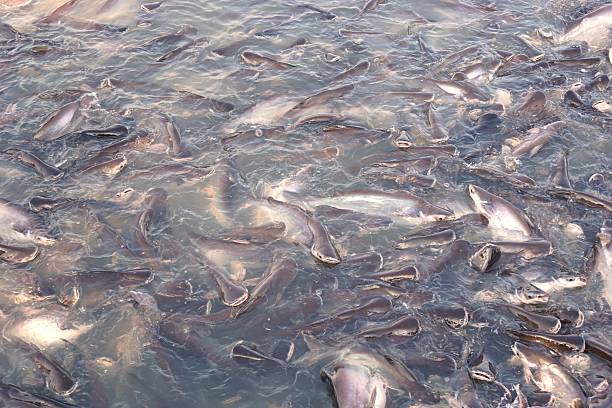The last thing we expect after setting up a water filtration system at home is for our water to smell or taste fishy. And yet, there might be occasions when you notice that exact issue. Despite the filtration process designed to remove contaminants and microorganisms like algae, certain factors might result in an odd odor. If you’re wondering why your filtered water tastes like fish, let’s dive into some possible causes and remedies.
Understanding the Culprit: Chlorine Content
One common cause behind the peculiar odor could be the chlorine content in your water. Water reservoirs are treated with chlorine and additional metals such as barium or cadmium to stave off the growth of bacteria and other microorganisms. Usually, chlorine is quite unobtrusive and often unnoticeable when applied in the correct proportions. However, a concentration exceeding the recommended levels might result in a distinct, fishy smell. Regulating the chlorine levels to their ideal range can often help eliminate the off-putting odor.

The Unseen Issue: Clogging
Clogging in your water pipes or channels might be another source of that fishy odor in your filtered water. Various contaminants in the water, or the presence of algae and similar substances, might clog your pipes over time. Remember that even if you maintain cleanliness, there’s a likelihood of periodic clogging due to microbial buildup. But worry not, cleaning agents like chlorine can help remove these clogs.
A Simple Solution: Changing the Filter
Sometimes, the most obvious solutions are the easiest to overlook. Your water filter needs regular maintenance which includes periodic cleaning and replacement. If your filtered water is giving off a fishy odor, it might be a sign that your filter needs a replacement.
Improving the Taste of Filtered Water
The taste of your filtered water can be vastly improved by taking some simple steps.
Regular Filter Cleaning
The water filter can gather various pollutants during the filtration process, which may leak into the water and affect its taste. Therefore, it’s essential to clean the water filter regularly. A general method to clean your water filter involves:
- Removing the drain outlet and thoroughly rinsing it with water.
- If the filter hasn’t been used in three or more days, rinse it for three to five minutes.
- For a filter that is more than ten years old, filter it for 15 minutes.
Remember to replace your filters periodically. With time and use, filters can lose their efficacy.
Controlling Inlet Water Flow
Filters are not designed to handle excessively high water pressures or large water volumes, which could lead to leaks and poor filtration, affecting the water taste. Make sure to periodically shut off the inlet source to prevent such issues.
Filter Backwashing
Long periods of filter inactivity can result in bacteria and mold development. If these filters are used without proper cleaning, they can produce water tainted with these contaminants. Backwashing the filter can help mitigate this issue. This involves taking the filter and thoroughly cleaning it by backwashing.
In Conclusion
Although the fishy smell in your water might not be harmful, it can certainly make your drinking experience less pleasant. Understanding the various causes behind this issue and applying the solutions mentioned above can help you tackle this problem effectively. Ensuring a fresh and clean water supply not only elevates your daily hydration but also contributes to a healthier home environment.

Jay
Jay is a health and wellness enthusiast with expertise in water quality and nutrition. As a knowledgeable advocate for holistic well-being, Jay successfully manages Type 2 Diabetes through informed lifestyle choices. Committed to sharing reliable and authoritative insights, Jay combines firsthand experience with a passion for enhancing health."

